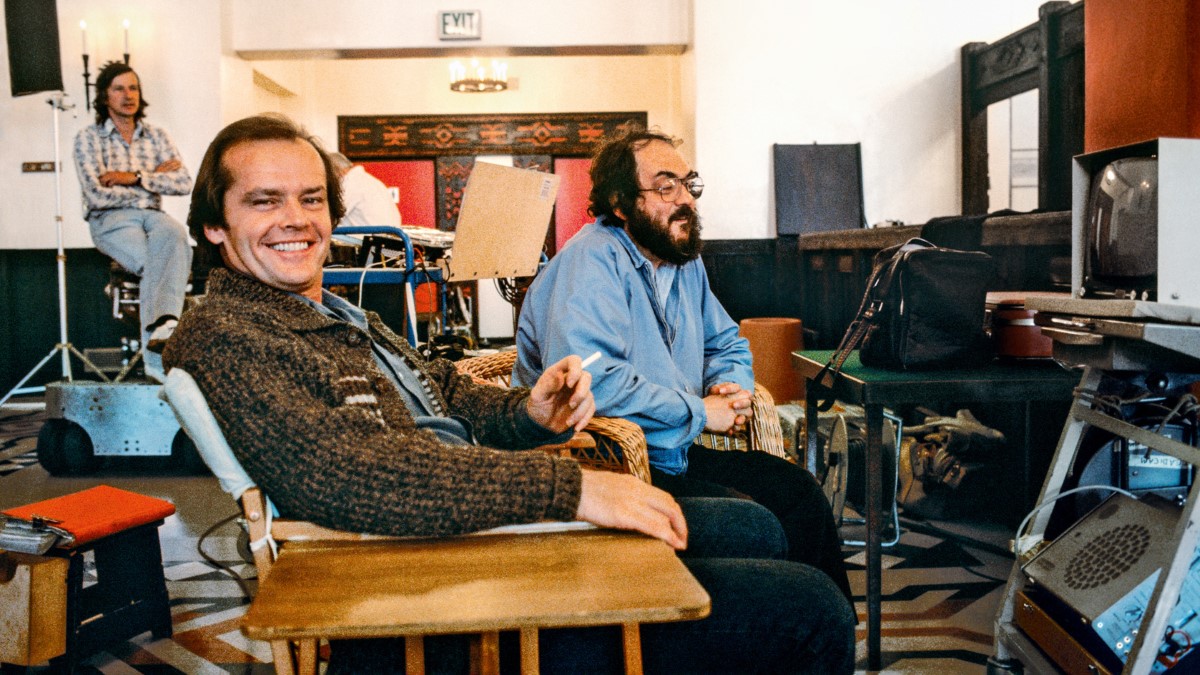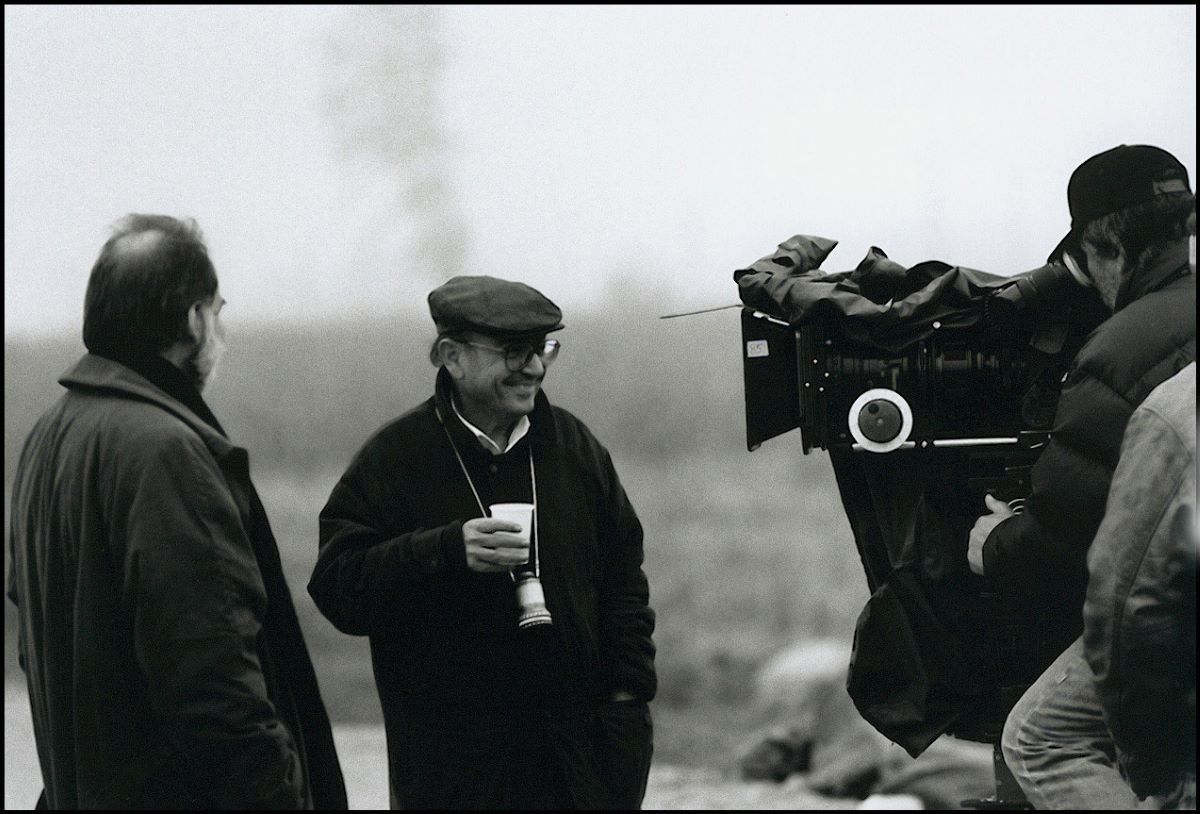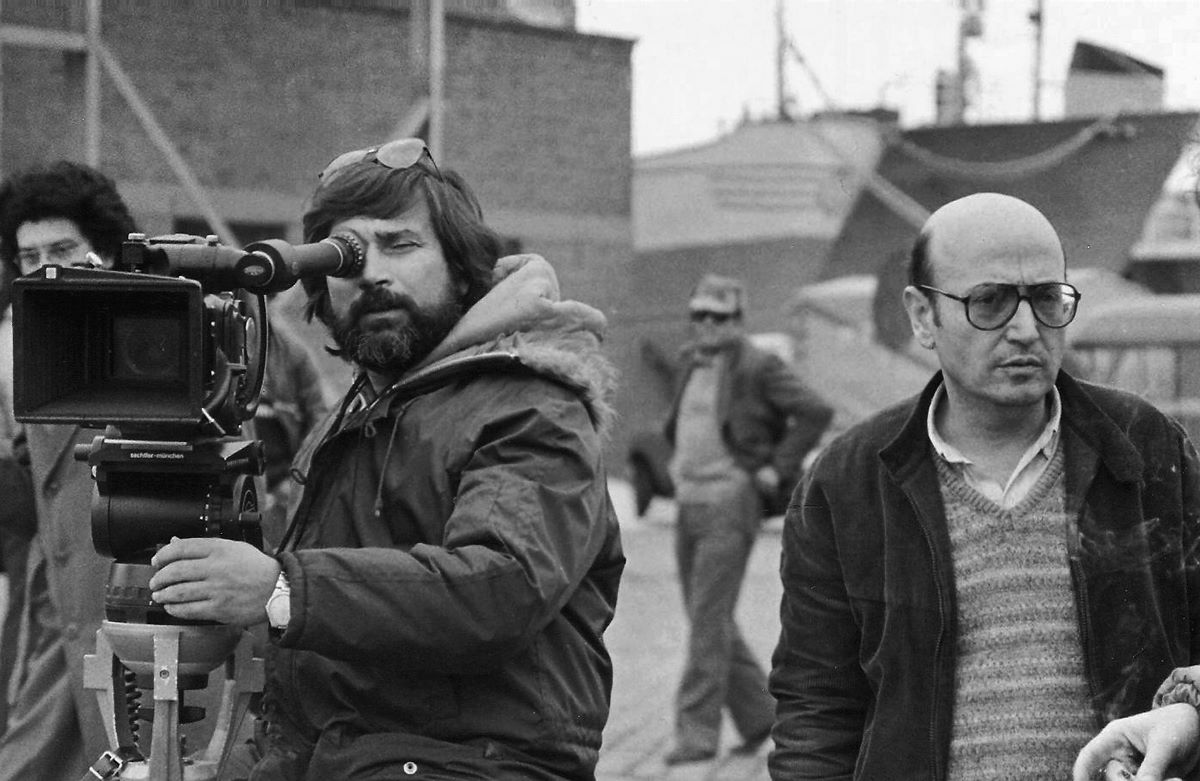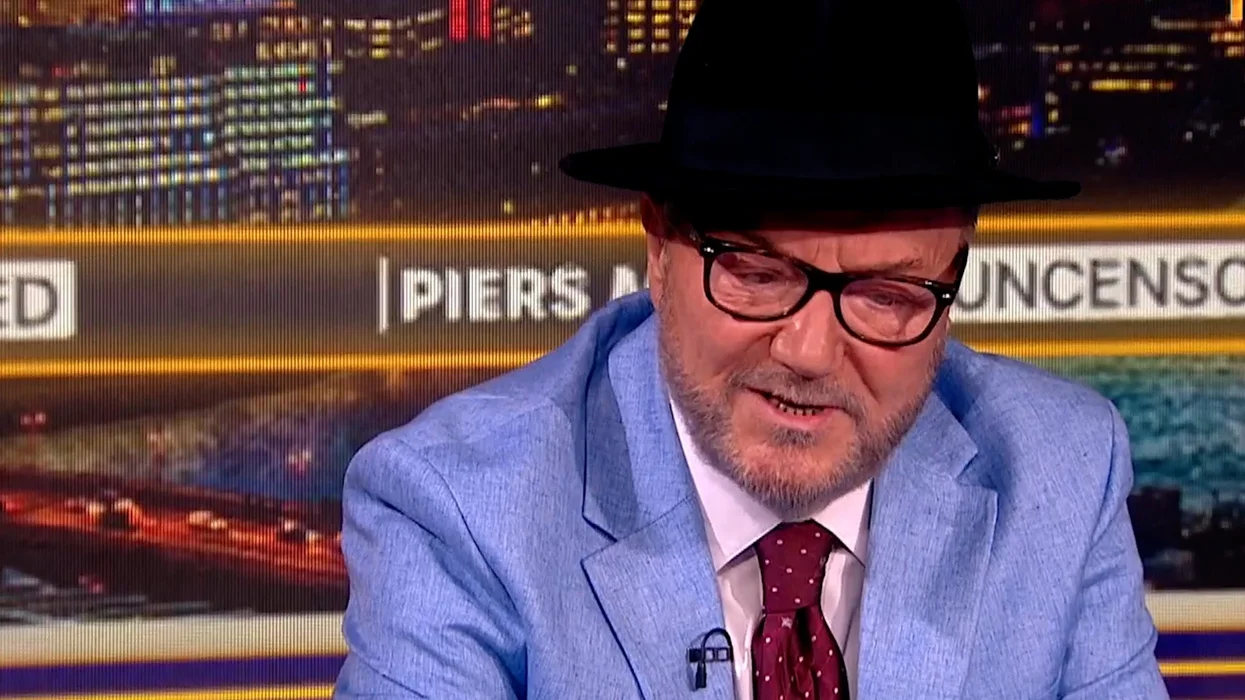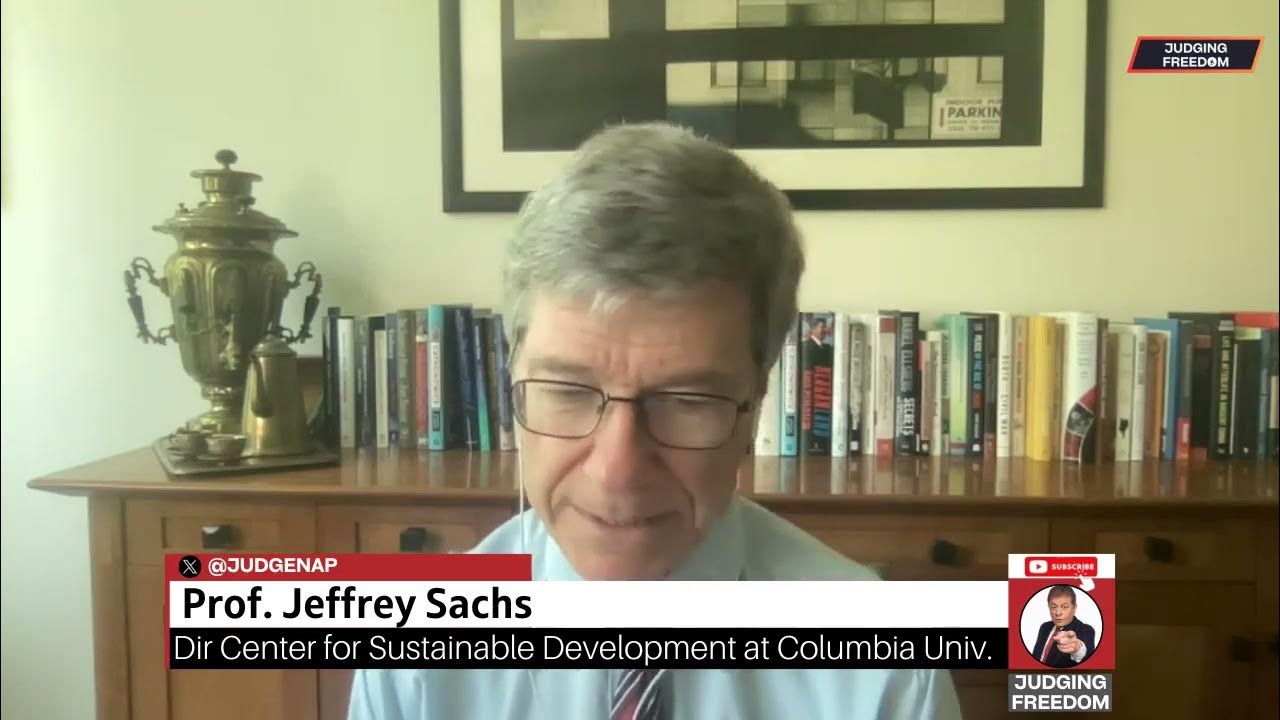Interview with Stanley Kubrick by Canadian Film Critic John Hofsess
by John Hofsess
London — The Shining is Stanley Kubrick’s bid for a “super hit” — (“I’ll settle for half the grow of The Empire Strikes Back.” he told me), an attempt to even a number of scores.
A valid commercial success for The Shining would prove to Kubrick that he is correct in one of his basic beliefs: “If a story interests me sufficiently lo spend two to three years making it into a film, then I believe it will interest many others as well. If a film is good, it won’t fail to find a proper audience, unless others in the industry — distributors, exhibitors — make some fatal error in selling it.”
Following the reception given Kubrick’s earlier film, Barry Lyndon, such remarks amount to a curiously positive faith in public taste. “Barry Lyndon did quite well in the U.S. but nowhere near what a film costing $12 million has to do to break even.” Response to the film still puzzles him. In Paris, Barry Lyndon grossed $3 million; in many European countries it has established a cult following just as, in North America, 2001: A Space Odyssey and A Clockwork Orange have. “It has always done better in Europe and South America than it did in the United States, Canada and England — I don’t know why. It will never break even, but no one suffered financially as a result: in fact, it made a lot of money, but because of the way that distributors have of skimming profits off the top a picture can show a deficit on the books while everyone with a share of the box-office gross benefits handsomely.”
Seeks New Way
With the release of Barry Lyndon, Kubrick realized that if he wanted to go on making movies that cost between $10 and $15 million, and if he wanted to maintain the creative freedom that he finds necessary (no studio interference during the making of a film, and the right to final cut) it was imperative to find a better way of earning money; a long-running “hit” in a few cities might look impressive on paper, but it was mainly profitable to bankers, not to him, and in a time of inflation and rising interest rates, the situation would only get worse
With The Shining, it was decided a year ago that the film would open in Los Angeles and the New York area on Memorial Day weekend, in a total of 10 theaters including an L.A. drive-in, to see how well it performed. (The results so far: house records were set in six theaters for the opening weekend.) Then on Friday, June 13, the film would open in 750 more theaters throughout the U.S. and Canada, sustained by a four-week national television campaign concentrating on the ABC network because its ratings show the highest concentration of viewers between the ages of 18 and 34. the same age group that most filmgoers are drawn from. On the June 6 edition of Saturday Night Live, for example, which NBC claims has an audience peak of around nine million viewers, the 30-second trailer for The Shining will be repeated three times.
It is estimated by those who devised the marketing campaign that by the fourth week of the film’s release, 93 percent of all adults in the 18-to-34 age group will have seen the trailer (which Kubrick personally edited and scored) at least seven times, and that 88 percent of all households in America will have been exposed to the advertisement 10.8 times. The purpose of the campaign is twofold: to overcome any negative criticism the film has received, and, most importantly, to build a huge national audience for the movie, guaranteeing an early return on its $12 million investment.
“I did not choose The Shining solely for its commercial value,” Kubrick says. “In order for a story to grab my attention it has to have cinematic possibilities. If I find that it interests me, more and more, as I consider what can be done with it on film then I make a decision, and that’s it. What intrigued me about Stephen King’s novel, which Warner Brothers sent to me for consideration, was the way in which the author kept the reader guessing about what would happen next. The novel has an inventive narrative that appealed to me.”
The Shining is not Kubrick’s greatest film, nor is it his greatest gamble, but it is his most ambitious attempt to connect with a mass audience.
“I’ve never achieved spectacular success with a film.” he says. “My reputation has grown slowly, I suppose you could say that I’m a successful filmmaker — in that a number of people speak well of me. [He smiles ironically: the May 26 issue of Newsweek, in which Jack Kroll calls The Shining “the first epic horror film,” lies in front of him as he speaks.] But none of my films have received unanimously positive reviews; and none have done blockbuster business.”
He does not say so directly (least of all in formal interviews which Kubrick rarely grants) but there are persistent hints in his conversation with me that Kubrick would like to prove to any doubters in the film industry that he can make an American film while still living in England, where he has resided for 18 years — countering the view that he is, in fact, an undeclared expatriate, and, as Pauline Kael contended in her review of Barry Lyndon, cut off from his American roots.
When he was younger, growing up in the Bronx and developing an avid interest in movies, Kubrick had a high regard for certain film critics. But once he got into the business himself, he came to the conclusion that “film critics only seem to have any importance when their tastes coincide with those of the general public.” It wasn’t simply that Bosley Crowther of the New York Times called Dr. Strangelove an “un-American movie” and repeatedly denounced it at an act akin to treason; what convinced Kubrick that most critics (“even the ones who write well”) are fools was the loud drubbing that 2001 got upon its release in 1968. “A monumentally unimaginative movie,” wrote Pauline Kael. “A major disappointment,” said Stanley Kauffmann. “Incredibly boring,” commented Renata Adler. “A regrettable failure,” wrote John Simon, shrugging it off as “a shaggy God’s story.” “A disaster,” said Andrew Sarris.
Good Review Useful
After that, nothing that critics have written about Kubrick’s work has mattered lo him. A good review is useful only as a marketing tool. “I have never learned anything about my work by reading film critics,” he said. He has never cultivated friendships with any critics; he issues no press releases concerning his films. Nor does he believe in “explaining” his work.
He looks over a page of movie advertisements from the New York Times and studies the effectiveness of The Shining’s logo in competition for attention with other ads. “Half the films now showing are masterpieces.” he says, laughing. “Spine-tingling, ravishing, painfully beautiful.” He folds the paper and puts it away, with one word: “Critics.” He says it the way most people say “sluts.”
There are some things concerning The Shining, however, which no one can deduce without the director s help, simply by seeing the picture. There are a number of significant changes between Stephen King’s novel and Kubrick’s film — the most obvious being their different endings — with the film avoiding an apocalyptic blowup of the Overlook Hotel. Kubrick cites an essay by H. P. Lovecraft in which the author says, “In all things that are mysterious — never explain.” but he nevertheless agrees to shed light on a few details.
“Very early on. I decided the novel’s ending wouldn’t do. I didn’t want the conventional ending — the big bad place bums down. I had a lot of discussions with Diane Johnston, a very good novelist that I admire and who I asked to collaborate on the screenplay; we decided that we needed an ending that was ingenious, that had visual potential, so we hit upon the idea of the hedge maze in which Jack Torrance would get lost, trying to pursue his son with an ax.
“There are a number of scenes that work in the novel — such as the topiary, in which the hedge animals move and pursue a victim — that I deleted from the film screenplay because I thought they would look hokey. There are no creaking doors, no skeletons tumbling out of closets; none of the paraphernalia of the standard horror film. In a story of this kind, establishing believability is the most important matter, which is why I tried to establish a matter-of-fact naturalism in the visual style of the movie. We shot in what looks like existing light: no elongated shadows, or melodramatic highlights. It’s just the story of one man’s family quietly going insane together.”
How He Cast the Film
“To a considerable degree I cast the film while reading the novel: who else but Jack Nicholson could play the father? I think Shelley Duvall, in addition to being a wonderful actress, perfectly embodies the kind of woman who remains married to a man like Jack Torrance, even though she knows he has brutally assaulted their son. You certainly couldn’t have Jane Fonda play the part: you need someone who is mousy and vulnerable.
“Scatman Crothers was chosen because I liked his work in other films, he had appeared with Nicholson in King of Marvin Gardens and One Flew Over the Cuckoo’s Nest. Danny Lloyd was discovered the hard way. One of my assistants, Leon Vitali, visited a number of cities, Denver, Chicago, Cincinnati, conducting interviews with over 5000 applicants for the role — that is, young boys that had never acted before. The most promising of these (several hundred) he videotaped doing improvisations and sent the tapes to me. Finally we got down to five, of which Danny was clearly the best. We came to the conclusion that genuine acting ability — the ability to concentrate, and pretend effectively — is probably a natural gift which one in 1000 people have. Danny has never had an acting lesson in his life; he wasn’t even six years old when we shot the film, but judging from his performance you would think he understands everything about acting.”
Despite Kubrick’s disregard for critical analysis, one of The Shining’s most perfectly realized scenes — Jack Torrance’s slow, demented and darkly comic pursuit of his wife — strongly recalls a similar scene in Lolita, when Humbert Humbert stalked Quilty through a large mansion and killed him. Torrance even says, at one point, as he inches closer to his wife, the words “light of my life,” part of Nabokov’s opening paragraph of Lolita. “Entirely subconscious,” Kubrick says. “If unintentional patterns in a work are as legitimate as intentional ones, then perhaps my work is full of them.”
Best News He’s Had
With the Memorial Day weekend results in, Kubrick told me, “Everyone at Warners is holding their breath. It looks like we have a monster hit on our hands. The Sunday grosses lopped the Friday records.” It’s the best news he’s had in years.
As to future plans: “I haven’t seriously thought about the Napoleon film for several years, though at one time I was fully prepared to embark on that project. I had over 5000 illustrations in a cross-referenced library, concerning costumes of the period: I collected over 500 books on the subject. But now, because of inflation, which would put the film in the neighborhood of $50 to $60 million, and because I’m not sure that it can be done under three hours’ playing time. I don’t consider it a feasible undertaking. I have no definite plans now, although I continue to be fascinated by Arthur Schnitzler’s novel Rhapsody: A Dream Sonata (as it is called in English) but have never figured out a way of solving all of its problems, translating from word to image.”
Kubrick spent the last week personally examining every reel of the first 25 prints of The Shining to make sure that the sound mix and reproduction, and the visual quality (color and brightness) of each print met with his approval. The next task will be preparing the foreign-language prints, and making sure that they approximate, as closely as possible, the standards set by the original.
He is called by some “the mad perfectionist”; but he sees his obsessions as artistic responsibilities. Only two things matter: his own judgment of his work, and the way in which the general public responds to it. With the release of The Shining and its marketing program, Kubrick aims at being in direct contact with that public: decorative niceties such as Oscars (he’s never been nominated), film festival prizes and appreciative critiques can all be damned.
John Hofsess won the 1979 National Newspaper Award for critical writing in Canada.
Published in The Soho News, May 1980.

